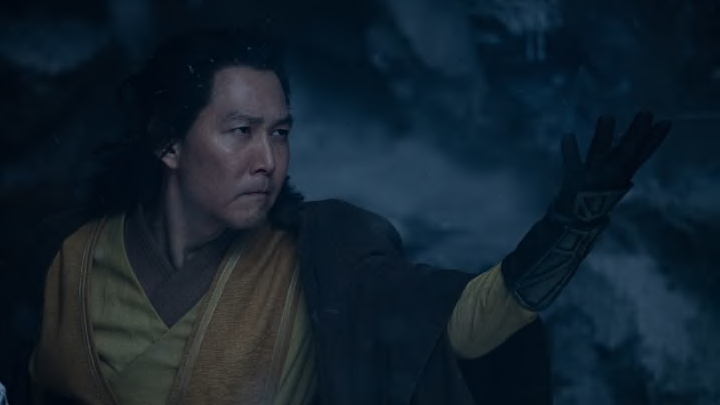In the first two episodes of Star Wars: The Acolyte, we have seen several Jedi either use or threaten to use a Jedi mind trick. The way they use these tricks makes one wonder whether it is truly the way a Jedi should use their powers.
The Acolyte forces tough question: Is it wrong for a Jedi to use mind tricks?
El Kuiper at ScreenRant recently meditated on this very question in an article that is well worth the read. Basically, the author brings up several instances in The Acolyte where the Jedi use mind tricks in a questionable manner and also brings up a key instance in Star Wars: The Clone Wars when the Jedi may have gone too far with a mind trick.
Let's begin with instances in The Acolyte. Early in the first episode, when Yord Fandar and his padawan board a Trade Federation ship in search of Osha, a Neimoidian captain is giving evasive answers. Yord simply raises his hand as if to threaten that he will use a mind trick or peer into his mind to get the information he needs. It is not necessary as one of the other Neimoidians tells him where she is, seemingly out of fear.
Using the Force in this way, as a tool to intimidate or threaten, definitely does not seem like how a Jedi should use it.
In another instance, Master Sol quickly gets the truth out of a prisoner who was on the same ship as Osha, as he reveals that she helped him escape. This instance seems less malicious since it happens so quickly, but something must be said about the invasive nature of a Jedi mind trick.
Kuiper argues that it is an inherently sinister ability. This is a fair argument, but it seems to fall into more of a grey area. There are instances when you can argue that the Jedi went too far with mind tricks, like in the episode of Star Wars: The Clone Wars when Anakin, Obi-Wan, and Mace Windu combine to peer into the brain of bounty hunter Cad Bane. Bane is clearly a bad guy, but being a bad guy does not give the Jedi license to a form of psychological torture.
The mind trick is really symbolic of the way that the Jedi are forced to compromise themselves as the galaxy becomes more dangerous and complex. By the time of the Clone Wars, the Jedi turned from benevolent peacekeepers to generals and warriors. It makes sense that as the Jedi are forced to become something they are not, some of their morals and ideals may become compromised in the process.
Star Wars Legends has also tackled the issue of whether mind tricks are in keeping with being a Jedi. This passage is from Wookieepedia on Luke Skywalker using a Jedi mind trick: "Luke Skywalker used this power on the animal denizens of lower Coruscant to protect himself and his companions during the Corellian crisis. He opted to jolt the animals' minds with fear as he was faced with a large pack and fear was the most readily recognizable emotion available. He did this to preserve everyone's life."
This is why the mind trick falls into a gray area. For a Jedi in a tough situation, it may be the only way that you can save lives, and it is certainly preferable to having to take a life.
The Acolyte is at least providing interesting fodder for discussion on this point. Perhaps we will see even more instances of the Jedi using this power in questionable ways before the series concludes.
